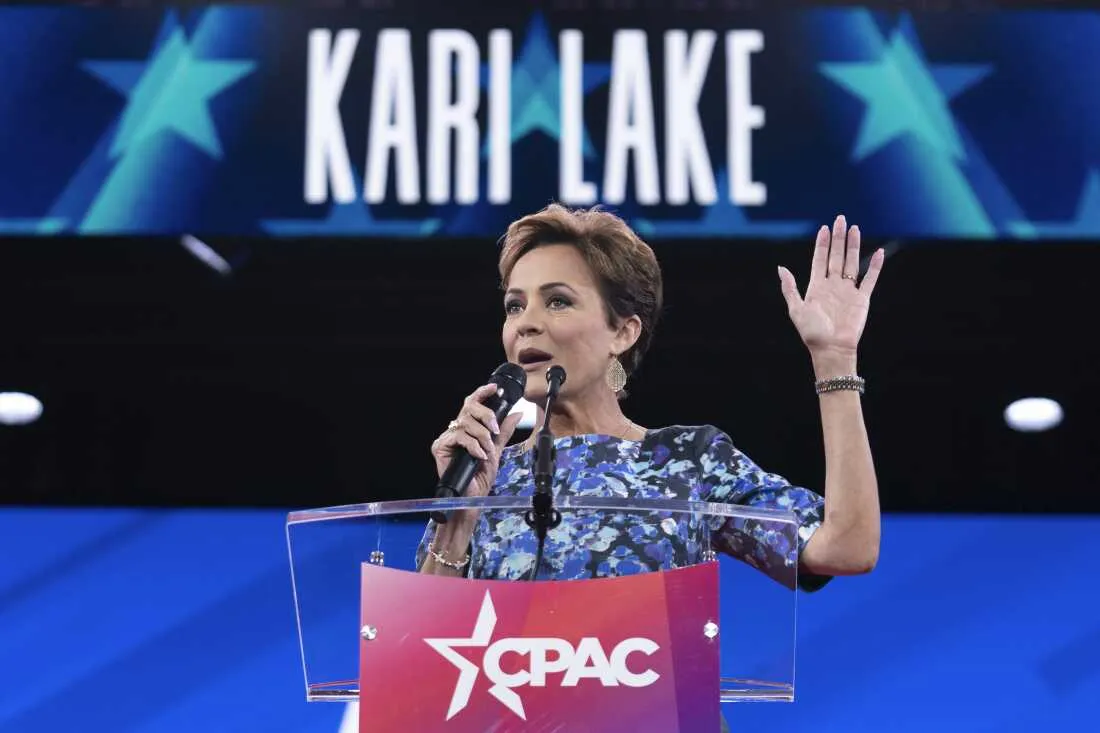Kari Lake and the Future of Voice of America: A Drastic Shift in Leadership
The political landscape in the United States has shifted dramatically in recent years, with many media organizations grappling with their role in a rapidly changing environment. One of the most affected entities is the Voice of America (VOA), the U.S. government-funded international broadcaster, which finds itself under new scrutiny following plans from former President Trump’s advisor to drastically cut its workforce.
From 1,300 to 81: The Numbers Speak
The proposed plan would see the staff at VOA slashed from about 1,300 employees to a mere 81, a stark reduction that raises questions about the future of the agency and its ability to carry out its mission of providing news and information to audiences around the world. Amidst significant political rhetoric and division, the implications of such cuts reverberate not just within the agency but also across the broader media landscape.
The Significance of Voice of America
Founded in 1942, VOA serves as a critical platform for disseminating information, particularly in countries where media freedom is restricted. The agency is designed to promote a better understanding of American culture and principles abroad. Its mission resonates with the First Amendment rights upheld in the United States, making it a key element in the U.S. Department of State’s efforts to communicate and foster dialogue globally.
Implications of the Cuts
Under the proposed reductions, nearly 1,219 employees would lose their jobs, raising alarms about the potential erosion of journalistic standards and capacities. There are concerns about who would remain in the agency and whether it can continue to fulfill its mandate effectively. With fewer employees, the ability to broadcast in multiple languages and reach diverse audiences could diminish severely. The consequence could be the loss of credibility and trust in U.S.-sourced news among global communities, particularly in regions where state-controlled news dominates.
Congressional Response and Oversight
A letter obtained by the Associated Press from several members of Congress outlines fierce opposition to the proposed job cuts, highlighting the bipartisan concern regarding the integrity and operational capacity of the VOA. Lawmakers argue that the drastic reduction in staffing would compromise the agency’s ability to provide accurate and unbiased information in a world increasingly reliant on digital communication avenues.
In their letter, these lawmakers express urgency in protecting the jobs of dedicated journalists who have proven their commitment to providing reliable news even in the most challenging environments. This demonstrates a vital recognition of the VOA’s role in countering disinformation, particularly in authoritarian regimes where censorship is prevalent.
Kari Lake and the Changing Landscape of U.S. Broadcasting
Kari Lake, the former Arizona gubernatorial candidate and prominent supporter of Donald Trump, symbolizes a new breed of political leader who perceives media through a lens clouded with skepticism and distrust. Her stance reflects a broader movement within certain political factions that challenge the credibility of mainstream media while advocating for alternative narratives.
The situation raises troubling questions regarding the intersections of journalism and politics. Would the proposed cuts serve to reshape the messaging of the U.S. government abroad? Would they further fuel the narrative that certain media outlets are partisan or biased? While many Americans may dismiss the VOA as simply another arm of government propaganda, those in media circles recognize it as indispensable for promoting democratic values amidst authoritarianism.
The Broader Media Landscape
The challenges faced by the VOA mirror those of many news organizations grappling with digital disruption and changing consumer behavior. The landscape has shifted from traditional broadcasting to an on-demand world, where audiences increasingly prefer quick headlines over in-depth reporting. Major news organizations have scaled down their reporting staffs to survive in an environment that rewards agility over substance.
As a government-funded entity, the VOA stands uniquely apart in its mission compared to commercial broadcasters. However, funding priorities set by Congress and executives have broader implications for how it can operate. The potential cutbacks jeopardize its capacity to engage in frontline reporting, conduct investigations, and provide diverse programming.
The Importance of Independent Journalism
Independent journalism serves as a bedrock of democracy, allowing citizens to make informed decisions. Moreover, the agency’s ability to deliver unbiased reporting enhances the global perception of the United States as a nation that values transparency and free expression. In eroding the workforce, the U.S. government risks creating a vacuum where independent journalism should thrive.
Internationally, the ongoing war against disinformation demands accountability and resilience from media organizations. Reducing the staff at the VOA could send a troubling message: that the U.S. is pulling back from its commitment to global reporting in favor of other domestic priorities.
The Road Ahead
The proposed job cuts for the VOA are reflective of a broader ideological battle within the United States regarding the role of government in media. With strong opposition from Congress, it remains to be seen whether the plan can be executed. Moreover, the reaction from the public—particularly communities that pledge allegiance to free and independent reporting—could drive the destiny of the agency.
As discussions unfold, it is crucial for American citizens to engage, be informed, and voice their support for independent journalism. In an era where similar channels of communication are strained or stifled, maintaining a strong Voice of America could safeguard not just news dissemination but the principles of freedom itself.
Conclusion
While reductions in government spending may appear prudent from a fiscal perspective, the existential threat posed to organizations like the Voice of America could undermine democratic values essential for guiding both domestic and international affairs. It is incumbent upon all stakeholders to advocate for a media landscape that upholds the values of free expression, adroit journalism, and diverse perspectives—a hallmark of the American democratic experiment.







